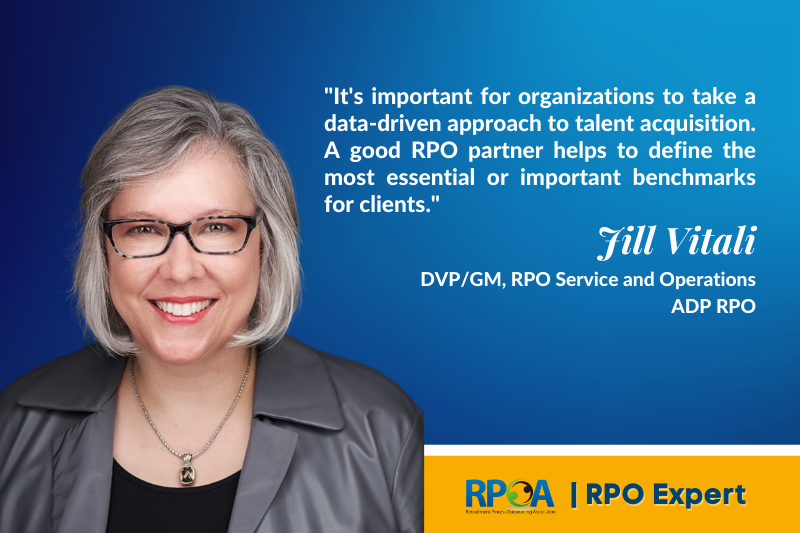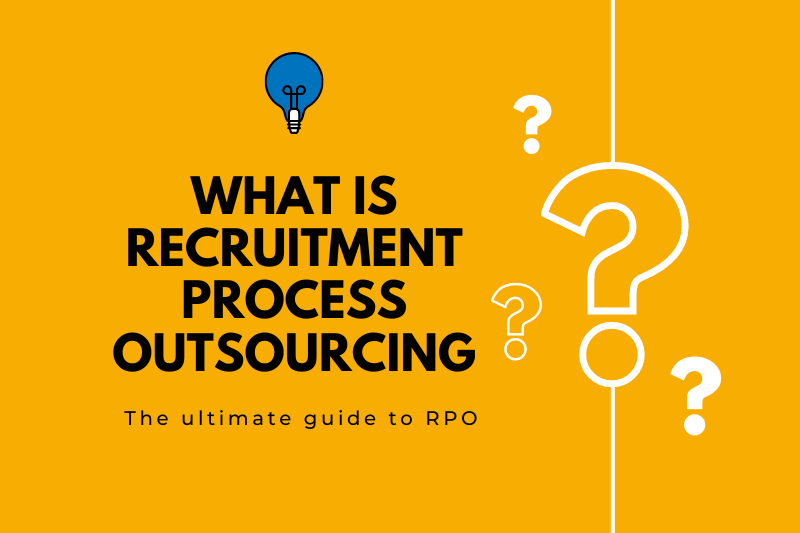
Aligning the recruitment process with the applicant tracking system (ATS) creates the foundation of consistent hiring. Lamees Abourahma of RPOA spoke with Mike Foster, Account Director for Advanced RPO, about recruitment process outsourcing (RPO) solutions that help employers create a consistent recruiting process.
The interview explored the significance of a consistent recruiting process for businesses. Foster delved into the importance of configuring the ATS with the recruitment process, the benefits of RPO solutions addressing scaling challenges, the added value RPO providers bring to employers, and a success story showcasing the effect of RPO in overcoming hiring obstacles. This interview will give you a deeper understanding of how RPO providers improve recruiting processes and drive organizational success. The following is an edited version of the second part of this Talent Leader Council interview.
RPOA: Why is aligning the recruitment process with the applicant tracking system (ATS) important for an employer?
Mike Foster Often, employers don't have an applicant tracking system (ATS) that is configured to their recruitment process. We'll see an ATS that's completely different from the recruitment process. Employers must look at and evaluate their recruitment process from start to finish and then configure their ATS to match that process. Alignment between the ATS and the recruitment process is essential because you can create recruitment reports and recruiter efficiencies from it. An ATS that is not properly configured can end up causing recruiters to resort to manual reporting and processes that will directly affect the speed, quality, and consistency of your recruitment process.
Q: What is an RPO provider’s role in aligning the ATS with the recruitment process?
Foster: When an RPO provider comes in, they'll first understand the existing recruiting process and ensure the current ATS is configured to that process. With alignment between the two, the RPO provider can then review data and metrics on how this process works while ensuring the recruitment function is working as efficiently as possible. From there they identify opportunities for improvement, see the successes, and start to make some business decisions based on that data.
RPOA: RPO solutions align the ATS with the recruitment process, offering substantial benefits for addressing the challenges of scaling talent acquisition.
Q: What are the benefits of using RPO to solve the problems of scaling talent acquisition?
Foster: Scaling talent acquisition involves challenges such as predicting headcount needs and managing fluctuations in hiring demand. Those fluctuations have a big impact on internal TA teams.
Partnering with an RPO can remove the burden of constantly right-sizing an internal TA team. Instead of adding recruiters (headcount) to meet a hiring spike and then retaining those overhead costs when demand cools or reducing the headcount, an RPO partner provides the recruitment resources needed for the necessary time period.
Another scenario could be a company’s need to hire a certain skill set at scale and the internal TA team doesn’t have experience recruiting those types of candidates. An RPO provider can supplement an internal TA team by taking on the recruiting for just those roles.
RPO companies also have support mechanisms for their recruiters which many companies cannot afford to build for an internal TA team. Oftentimes a single recruiter is responsible for handling all aspects of the process. There are many administrative tasks and behind-the-scenes work involved in recruiting, and it’s hard for a single person to be an expert in all aspects of the recruiting process. Many RPOs have dedicated teams of people that handle tasks such as sourcing candidates, reviewing resumes, scheduling interviews, and extending offer letters.
RPOs also prioritize ongoing training and development opportunities for their recruiters to ensure they are staying current with the latest trends and developments related to attracting, engaging with and hiring talent.
In-house talent acquisition teams are often tasked with many priorities outside of recruiting, and partnering with an RPO provider can enable them to scale and balance all the elements of the recruitment process.
Q: How do RPO solutions bring added value to employers?
Foster: RPO providers bring value and expertise above and beyond providing traditional recruitment support. For example, there are many new artificial intelligence tools on the market. We have a team that evaluates all of them to check out their effectiveness and determine where they can best enhance the recruiting process. This is something that many internal TA teams don’t have the bandwidth to do.
Many RPO providers also have expertise in recruitment marketing, advertising, and posting strategies. There's an art and science to posting using artificial intelligence and digital marketing. No longer can companies think, “I will buy 30 Monster postings, and that'll be good.” Recruiters can be highly effective using these tactics if they understand the art and science behind them.
RPO offers advanced recruitment tools and technologies that can significantly enhance the effectiveness of the recruiting process. But these tools are expensive and many companies don’t know which ones to invest in or how to get the most out of them. When requisition loads come down, the first things eliminated are the tools and the advertising, and all of a sudden, recruiters aren't effective. Employers then say, "Why aren't my recruiters effective?" Well, if you put your recruiters in a position to be successful and give them the tools they need, they will be successful. Why pay for a 12-month license for a tool you only need to use for 6 months? Working with an RPO partner eliminates the need for employers to purchase certain recruitment tools and technologies themselves as they are built into the RPO engagement.
Related Talent Leader Council content that describes the effect of AI on talent acquisition.
Q: Can you share an example of how your RPO solutions helped employers overcome hiring challenges?
Foster: We had a mid-size client with two or three recruiters and a backlog of 70 openings. They could not keep up with turnover and the additional requisitions simultaneously. With minimal data and metrics, they estimated their time-to-fill at between 3-6 months. They were hiring anybody they could get through the process, and then that person ended up turning over quickly.
As we evaluated their recruitment process we quickly found out that the bottleneck was with the hiring manager interview estage. Many positions required 6-7 rounds of interviews which took up to 4-6 weeks to complete. This was causing top candidates to drop out of the process and meant recruiters had to start over frequently.
We also identified that they had no step or statuses in their ATS to track progress. A candidate would apply and sit at the same status from the second they entered the ATS until it was time for an offer. When asked about a typical interview-to-hire ratio, the client didn't have any of that information.
We recommended a best-in-class recruitment process that focused on only including decision makers in the recruitment process. This meant the client only needed 2 rounds of interviews which could be completed in 1-2 weeks. We also properly configured their ATS to align with the new recruitment process to help improve recruiter and reporting efficiencies.
Once the client agreed to our proposed recruitment process we documented it and built process maps to visualize our plan. From there we went into implementation mode to put this plan into place quickly.
It has been a year since we implemented the new process and we’ve improved their time-to-fill to 40 days for exempt-level roles. Additionally, they have robust recruitment reports that roll-up to senior leadership to help make impactful business decisions.
In Conclusion
Aligning an optimized recruitment process with an ATS cultivates consistent hiring. RPO providers are pivotal in buidling consistent recruiting processes and driving organizational success through their expertise, advanced tools, and adaptability to varying industry needs. Consistent hiring profoundly effects businesses' overall success and sustainability in today's volatile and competitive market.
We encourage you to read part one of our interview with Mike Foster for insights into RPO improving the quality of hire.














